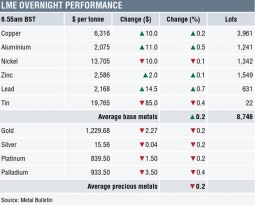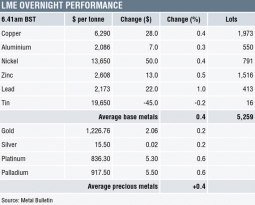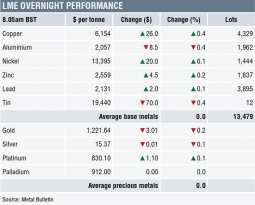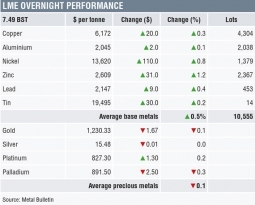China’s influence on the commodities market have grown in recent years but it must do more to open up its economy before it can become a price-setter, panellists at the FT Commodities Asia Summit said here.
Chinese demand has driven commodity prices for several years and this trend will continue, Craig Pirrong, professor of finance and energy markets director of the Global Energy Management Institute at the Baur College of Business – part of the University of Houston – said on Monday.
Around April this year, Chinese traders and investors who piled into commodity markets caused a spike in steel and iron ore prices. Rebar prices on the Shanghai Futures Exchange surged, whick had the knock-of effect of sending base metals prices on the exchange soaring as well.
“What happened earlier this year could be the harbinger of change for price discovery [to shift] from western markets to Asia. [But] creating the infrastructure is important,” he said.
Although Trading during Asian hours at the CME has increased, the Chinese economy is not “open enough to participate in price discover”, Christopher Fix, managing director and head of Asia Pacific at CME Group said.
The yuan still cannot flow freely in and out of the country and investors are concerned after Beijing made a surprise devaluation to its currency at the start of this year, Fix noted.
“There is a lot of interest [in China] but there still not yet a level playing field there,” Fix said. “There is a lot of opportunity to grow but it will take a while to develop its infrastructure.”
China will speed up the loosening of its capital controls, Shanghai Gold Exchange (SGE) chairman Jiao Jinpu believes, citing the SGE’s international board – Shanghai International Gold Exchange (SGEI) – as an example where investors are not restricted on capital flows and/or currency exchange.
From its inception in September 2014, the SGEI has gained 66 international members as at the end of August, of which 53 have started trading and 15-20 are active members, according to Jiao.
There are few obstacles to trading gold on the SGE but perhaps international investors are not so familiar with this possibly due to language, culture and insufficient publicity, he suggested.
“The shift of [price discovery] from the west to the east is a market choice and is inevitable,” he added.
China is keen to open up its domestic commodities futures market to foreign participation while it seeks to become a price-setter in the global commodities market where it is a huge consumer.
Fang Xinghai, China Securities Regulatory Commission (CSRC) vice-chairman, said in May this year that it will gradually allow overseas investors to participate in Chinese commodities futures trading by “creating conditions to allow more overseas futures companies to enter China while bringing in overseas investors”.
(Editing by Mark Shaw)
The post China ‘must open up further’ to become commodity price-setter appeared first on The Bullion Desk.
Read More
Source: Bullion Desk News








